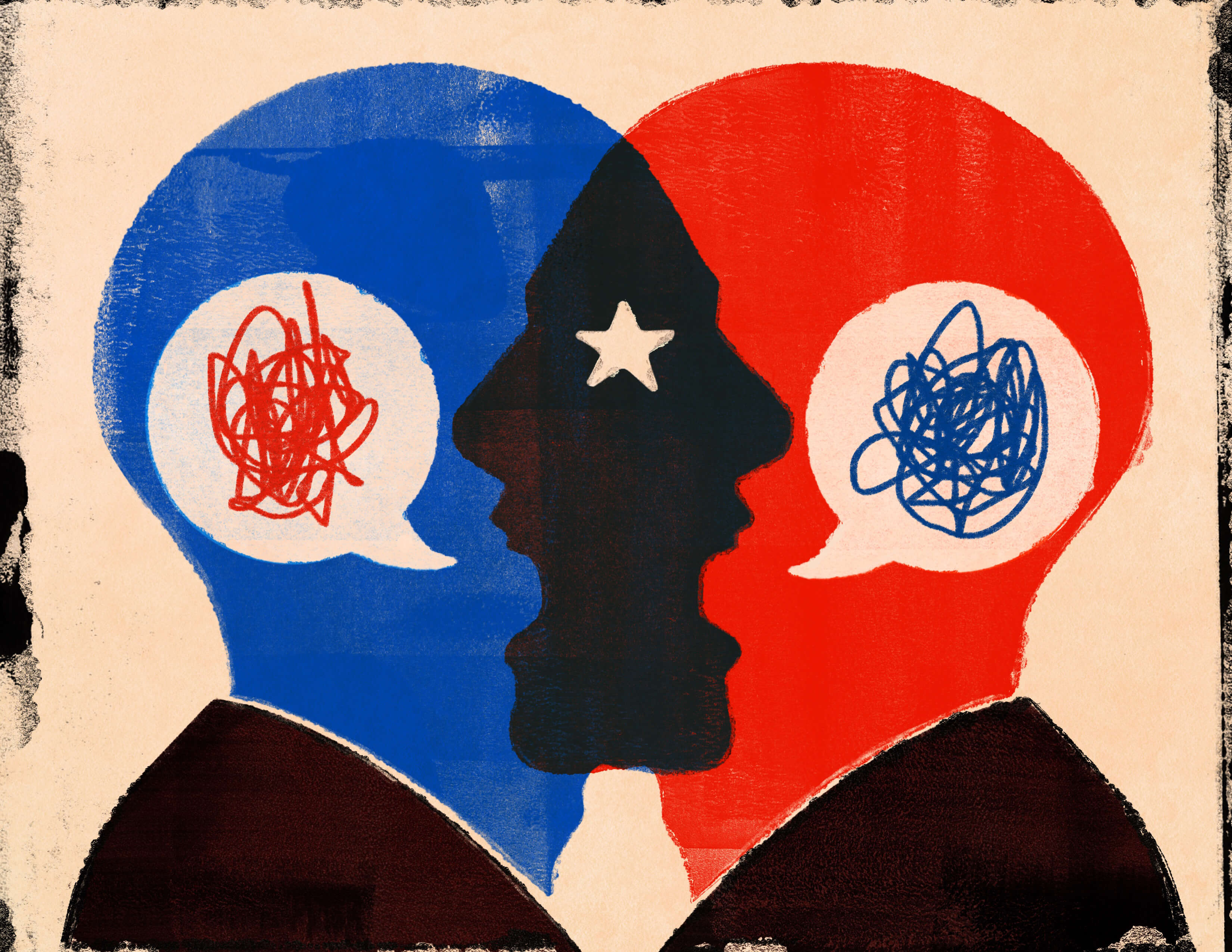
Q: How Can I Have A Civil Debate?
Political science professor Joseph Patten shares tips on how to keep political discussions civil this election cycle.
Following the 2016 presidential election, psychologists and therapists across the nation noticed a spike in patients from both sides of the aisle who were experiencing post-election stress disorder, the unofficial name for the anxiety and depression brought on by activities such as communicating with people who hold politically opposing views.
That’s not surprising, says Associate Professor of Political Science Joseph Patten, given the preponderance of populist leaders whose rhetoric and platforms attempt to divide us.
“What’s destructive about populism is … this framing of politics as the establishment versus the people, but where only some of the people are really ‘the people,’” says Patten. “These populist leaders are anti-pluralist, meaning they try to attract supporters by almost intentionally alienating others. So if you look at what’s keeping the Democratic and Republican parties together … it’s the negative partisanship; it’s the hatred of the other.”
In other words, political tribes have become obsessed with demonizing the other, and that can be detrimental to our relationships and mental well-being when we hold differing political views from family and friends, says Patten.
“There’s a study that shows that families who are unified about Trump—either loving him or hating him—spend at least an hour longer together on Thanksgiving,” says Patten. “So that’s where our dysfunctional politics has ultimately infected us: We’re now dysfunctional too.”
With election season upon us and the holidays around the corner, there’s never been a better time for a refresher on how to remain civil while discussing politics. Patten shared three tips that will help you maintain your relationships—and sanity—through election season and beyond.
1. Don’t try to “fix” anyone.
“What happens when somebody expresses an idea that’s different from our idea is that we tend to naturally think something is wrong with that person and we must fix them,” says Patten. Don’t. Instead, go into every discussion with an open mind, willing to appreciate and even enjoy a different viewpoint.
2. Agree to disagree.
It’s important to be open to others’ viewpoints, but we don’t need to compromise on our core principles says Patten. “We should all recognize that we have a social responsibility as developed humans to at least try to understand the viewpoints of others even when our views don’t align … and to be OK with that,” he says. “It’s OK to have disagreements.”
3. Avoid dehumanizing language.
Because there are no social norms about political discrimination—as there are for discriminating against people for their race or gender—it’s become acceptable to speak about others in politically dehumanizing ways. Avoid doing so because it facilitates the “otherization” of the person or group, says Patten. “People are not … this label of a thing. They’re not left wing or right wing; they’re not snowflakes; they’re not a basket of deplorables. … They’re humans,” says Patten. “Once you start talking about people in non-human terms, it makes it easier to use violence against them.”
The 10-Second Bonus Question: When Do I Avoid Talking Politics?
“You can’t have a good political discussion with somebody whose intention is to be insulting or whose intention is to try to prove how stupid you are,” says Patten. “So if somebody’s coming in without good intentions, then you shouldn’t have the conversation in the first place.”
Have a question for our faculty experts? Email magazine@monmouth.edu.